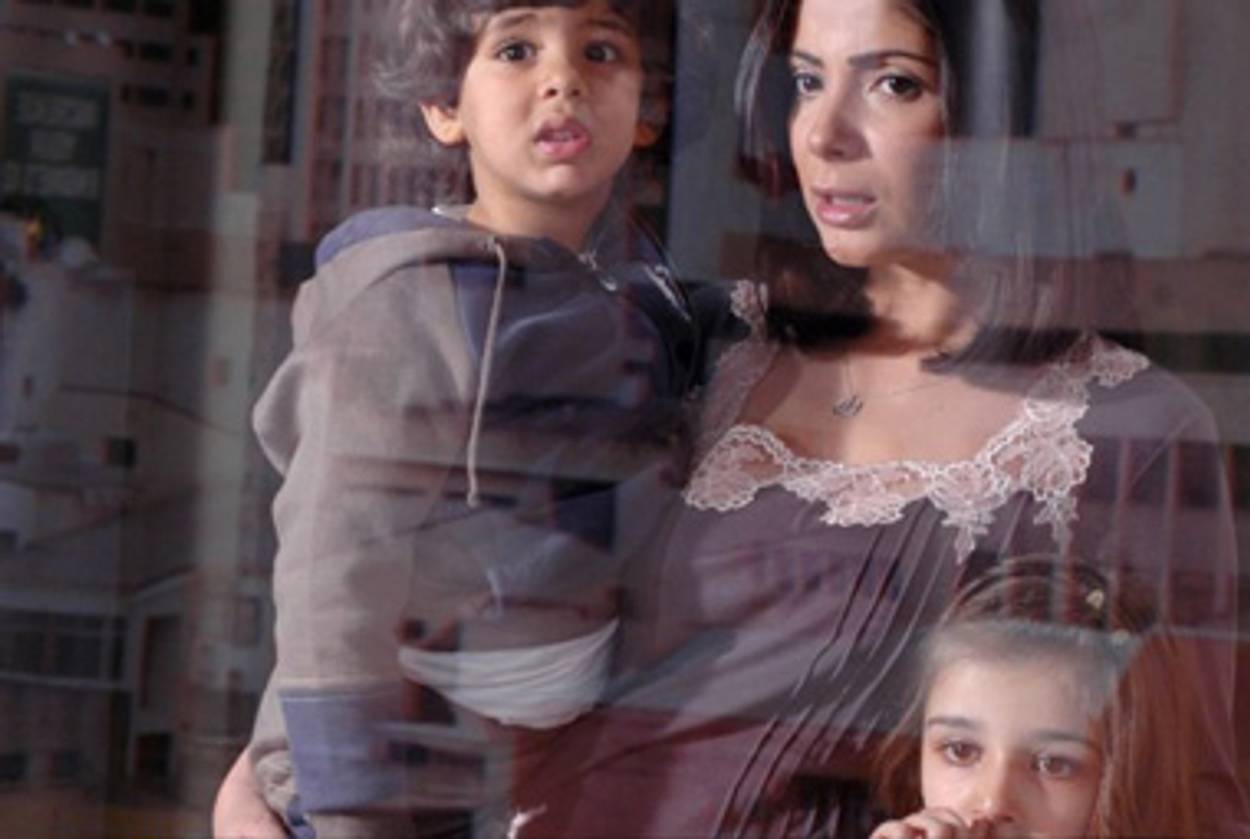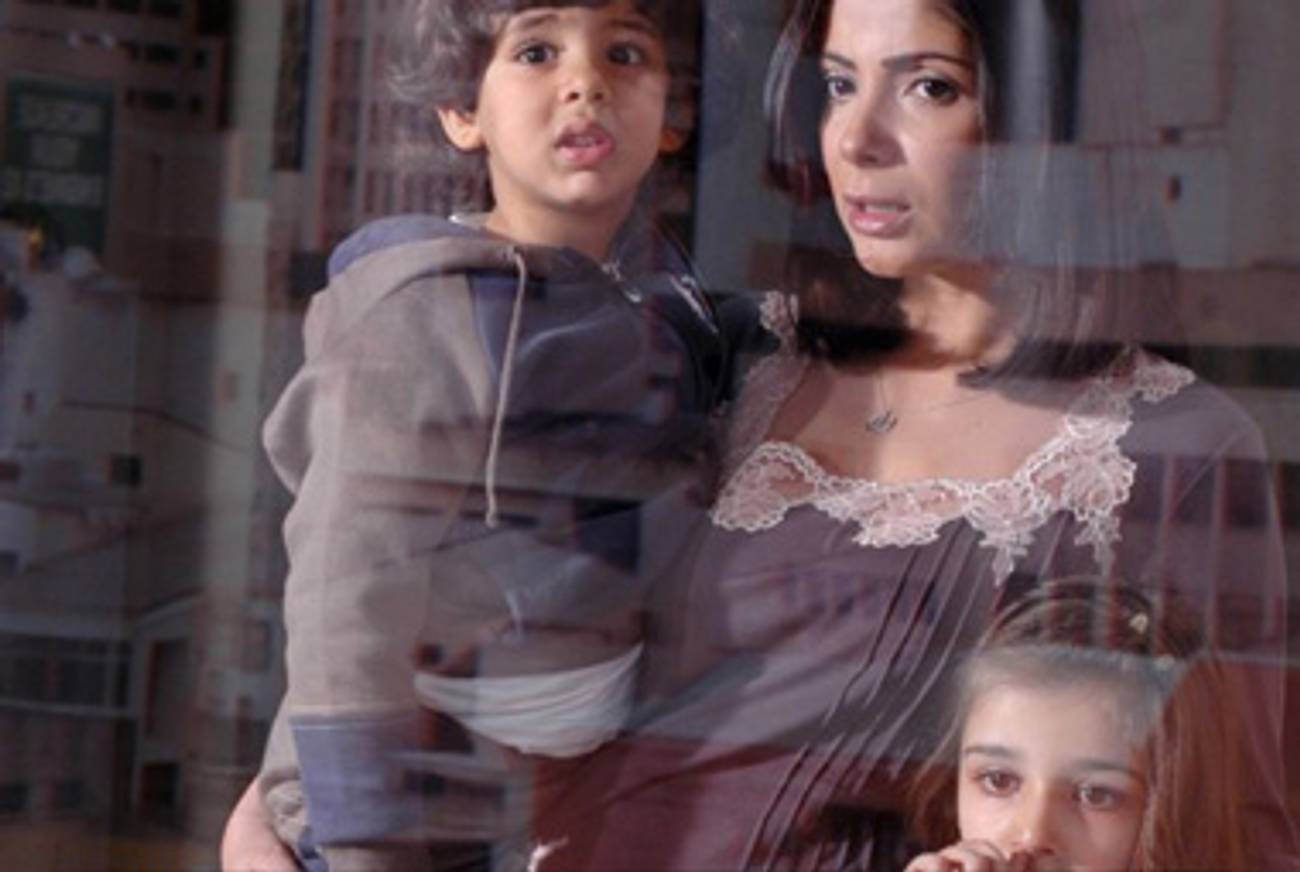Family Feud
What an Egyptian thriller says about the country’s perception of Israel




A recently released Egyptian action film manages an unusual feat: It is vehemently anti-Zionist without being crudely anti-Semitic.
Welad El-Am (Cousins) is the latest of a long line of Egyptian films and soap operas to reimagine the country’s deeply unpopular relationship with the Jewish state. The Israel of Welad El-Am is, unsurprisingly, a despised enemy—racist, violent toward the Palestinians, and hostile to Egypt, the neighbor with whom it has technically made peace. Yet the Israel portrayed is a complicated society made up of flawed Palestinians and a diversity of Jewish characters. The film is also one of the first Egyptian movies to have been written partially in Hebrew.
Director Sherif Arafa and writer Amr Samir Atef,perhaps unwittingly, employ a number of anti-Zionist tropes derived from old anti-Semitic canards, but they do not argue that Israel’s problem is that it’s Jewish. Their Israel remains an enemy, but largely because it itself continues to think that it’s one.
The story revolves around Daniel, a Mossad agent of Egyptian-Jewish descent who had been undercover in Egypt for seven years. Recalled to Tel Aviv, he takes his Egyptian Muslim wife and their two children out for a boat ride near the Suez Canal, where a team of Israeli agents surrounds their skiff and seizes the family. Selwa, his wife, panics upon waking up in Tel Aviv, and though Daniel professes his love for her she refuses to stay in Israel. Egyptian intelligence quickly sends Mustapha, a Hebrew-speaking agent, after her. The ending is the expected one—Mustapha rescues the family and kills Daniel (in particularly gruesome fashion).
The film has been a mass market hit, winning six Egyptian “Oscars” and earning nearly $2.6 million in its first two weeks, the highest box-office take of any of the Egyptian films released during last winter’s Eid Al-Adha holiday season. The film stayed in Cairo theaters for more than six months and made its way to cinemas in other Arab cities, including Beirut.
Mansour Abd Al-Wahab, a Hebrew professor at Cairo’s Ain Shams University, served as a consultant on matters Jewish and Israeli, but he says he told the director that his working on the film was contingent upon its not misrepresenting Judaism or Israeli culture.
“I refused 100 percent to talk about the Jews in stereotypes and the Israelis in stereotypes,” he said. He ended up spending two months helping the film’s Egyptian stars memorize their Hebrew lines and pushing them to improve their accents by watching Israeli TV. He also advised the screenwriter on scenes that discuss Mizrahi immigration and kashrut and helped suggest how best to decorate a Tel Aviv apartment.
(He also, at the director’s urging, reluctantly made his own film debut, donning a shtreimel and tallit to play a rabbi at a Passover seder.)
According to a local newspaper’s account of a special showing of the film, the writer drew criticism from the audience because he named the film “Cousins” and created sympathetic Israeli characters. Although Egypt and Israel maintain diplomatic ties, Egyptian cultural and professional unions boycott the Jewish state. Did he, they asked the writer, support normalizing relations?
Of course not, the writer answered. And even though we’re cousins, we can still hate them.
Needless to say, the film does not come close to fulfilling the professor’s demand for a movie free of negative stereotypes. The few Israeli journalists who reviewed the film were not impressed. Mustapha, seeing a Tel Aviv street fall silent during the air siren on Holocaust Remembrance Day, asks a nearby Israeli for an explanation. Mustapha reacts incredulously. “Don’t they think how they’re doing the same thing to the Palestinians as was done to them?” As the movie’s closing action sequences pick up, the humanity of the Israeli characters falls away fast. Daniel is shown torturing Mustapha and shooting dead an unarmed female Palestinian prisoner.
And yet, the film’s beef with Israel and Israelis remains, at root, political, not racial. More significant than the film’s concern with Israel’s conduct in the Palestinian territories is its conviction that Israel remains hostile to Egyptian interests. “Egypt is our biggest enemy out of all the Arab states,” says Daniel to his debriefer in the Mossad. “We need more spying networks, until half the Egyptian people are spies and the other half is in trouble.”
The Palestinians themselves do not play faultless victims. A scene set in the West Bank shows Israel jets strafing a village in order to clear land for the security wall—but Palestinian workers build the wall, abandoning their nation for a quick buck. Mustapha, in Tel Aviv, realizes a Palestinian woman he met plans to blow herself up in a nightclub; he chases after her and prevents the attack. She should get revenge by succeeding in life, he tells her, not by killing herself.
Offscreen, Egypt’s leaders and strategists have proven incapable of overpowering Israel or reconciling fighting Palestinian factions. But in the cinema, viewers come away with a “positive spirit” of empowerment, as the director said during an appearance on a local talk show. The film not only vicariously avenges Egypt’s military defeats, it also suggests that Egypt could regain the mantel of regional political leadership many Egyptians think they ceded, ultimately without recompense, by signing the Camp David Accords. “You gave up on us!” shouts one of the Palestinian laborers Mustapha encounters. Mustapha’s reply comes in the film’s final line. “We will return, but not now,” he says as he begins his journey back to Egypt with Selwa and her children.
The director remarked that he began Welad El-Am in part because he wanted a project that would engender such a can-do spirit. “The cinema is the one thing that can do that now,” he said on the local talk show. By the end, the film’s aggression and bloody violence serve to exorcise not just Egyptians’ frustrations with Israeli policy but also their frustrations with their own.
Sarah Mishkin is a journalist based in Cairo.